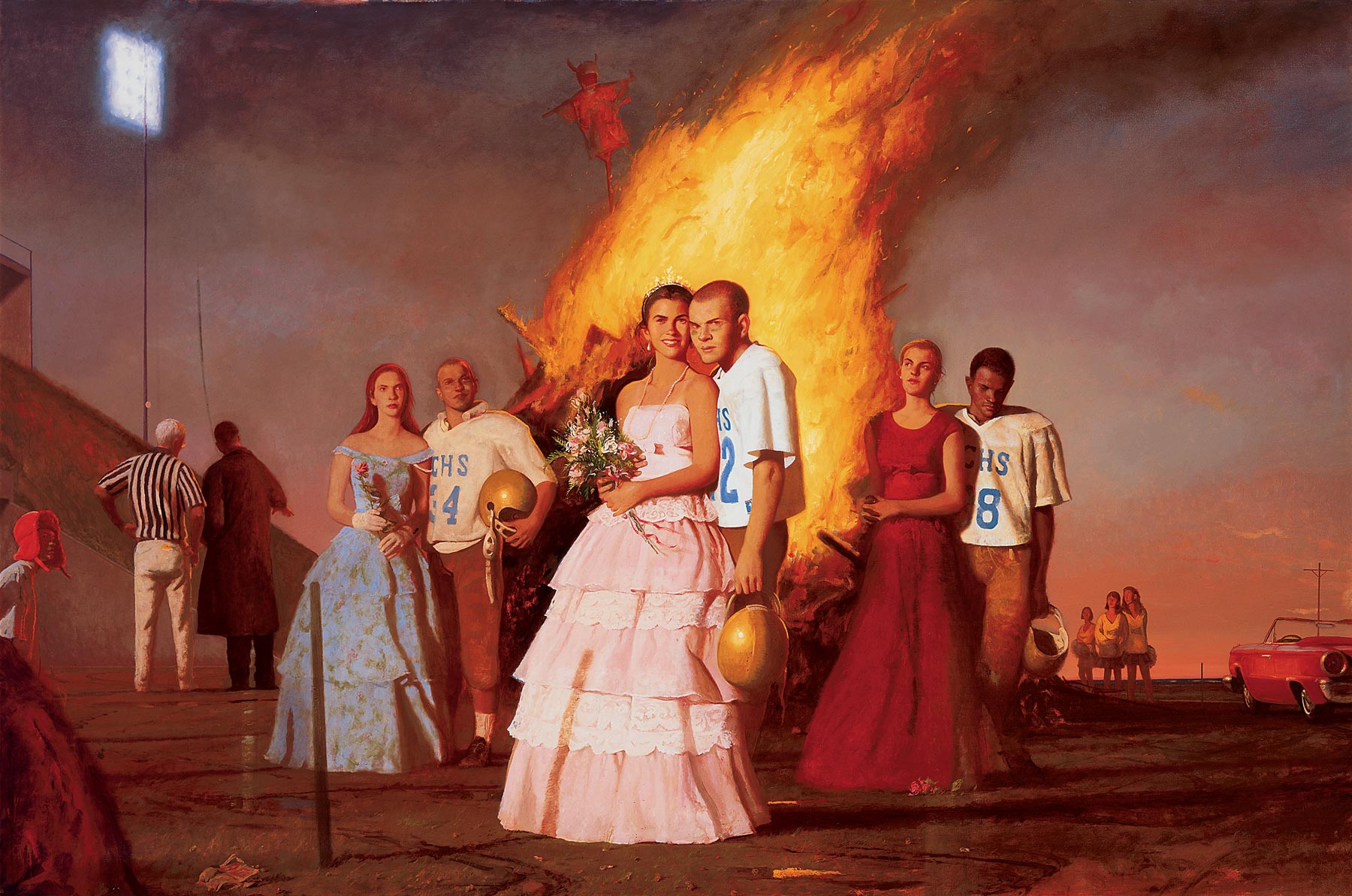1) On the origins of campus “political correctness” discourse
Throughout the 1980s, conservative pundits warned of a multiculturalist crusade to reshape the campus. …Speech codes and sexual-harassment policies targeted those who did not display the proper sensitivities to minorities and women. The professors of the academic left underwrote these developments by unmasking the ideal of objectivity, erasing the distinction between language and the realities it described, and communicating in an opaque jargon that deflected criticism from the outside.
–Alexander Star
2) On the way academic political ideas are prescribed, not explored
I believe that what is now called literary criticism is a form of Xeroxing. Tell me your theory and I’ll tell you in advance what you’ll say about any work of literature, especially those you haven’t read. Texts are not read; they are pre-read. All of literature is x and nothing but x, and literary study is the naming (exposure) of x. For x, read imperialism, sexism, homophobia, and so on. All of literary history is said to be a display of x, because human history is nothing but the structure of x.
–Frank Lentricchia, “Last Will and Testament of an Ex-Literary Critic”
3) On the way academic orthodoxy promotes simplistic views of human difference
In cultural studies, for all its fierce internal debates, there seems to be an unwritten loyalty oath to uphold the trinity of class, race, and gender as the three fundamental dimensions on which difference is present in human experience. Moreover, on the American scene, class regularly drops out of view. Actual work in cultural studies typically focuses on race, gender, and sexual preference. Not only does class recede, but so do other major social bases of discrimination, conflict, and differential power.
–Michael Schudson, “Paper Tigers”
4) On the “heroic self-inflation” of academic cultural criticism
Over the last ten years, I’ve pretty much stopped reading literary criticism, because most of it isn’t literary. But criticism it is of a sort — the sort that stems from the sense that one is morally superior to the writers that one is supposedly describing. This posture of superiority is assumed when those writers represent the major island of Western literary tradition, the central cultural engine — so it goes — of racism, poverty, sexism, homophobia, and imperialism: a cesspool that literary critics would expose for mankind’s benefit. Just what it would avail us to learn that Flaubert is a sexist is not clear. It is impossible, this much is clear, to exaggerate the heroic self-inflation of academic literary criticism.
–Frank Lentricchia, “Last Will and Testament of an Ex-Literary Critic”
5) Of the left’s obsession with gestures of “resistance”
Greil Marcus told an interviewer that he wondered why cultural studies scholars were so eager to read ‘resistance’ into their favorite TV shows and pop songs. ‘A lot of the people in cultural studies these days kind of remind me of the FBI in the fifties: They find subversion everywhere. The difference is that they like it, or at least claim to.
–Alexander Star
6) On puzzlingly insipid assumptions about academic theories
Instead of assuming that, say, Lacan’s theory tells us something about film or literature, we need to investigate whether we ought to accept that theory in the first place.”
–Alexander Star
7) On the self-reinforcing self-isolation of academic theories
An advanced literature department is the place where you can write a dissertation on Wittgenstein and never have to face an examiner from the philosophy department. An advanced literature department is the place where you may speak endlessly about gender and never have to face the scrutiny of a biologist, because gender is a social construction and nature doesn’t exist.
–Frank Lentricchia, “Last Will and Testament of an Ex-Literary Critic”
8) On how displays of “political virtue” can be at odds with scholarly inquiry
Because many scholars who engage in cultural studies are self-proclaimed advocates for women, gays and lesbians, or people of color in higher education, it is easy to see why the fashioning of a distinctive intellectual vision becomes identified with political virtue. But even though political like-mindedness is a familiar and valuable basis for human solidarity, it is a dubious grounding for a whole field of study.
–Michael Schudson, “Paper Tigers”
9) On the way political thought verges on masturbation fantasy
George Orwell once remarked that political thought, especially on the left, is a sort of masturbation fantasy in which the world of fact hardly matters. That’s true, unfortunately, and it’s part of the reason that our society lacks a genuine, responsible, serious left-wing movement.”
–Noam Chomsky, quoted from a 1969 lecture
Read the book:






